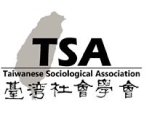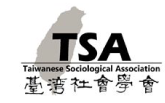場次簡介/ Description:
本自組場次的主題是「台灣的社會團結經濟運動」,這是延續2022年台灣社會學年學會「社會團結經濟場次」的努力,透過處理不同主題的幾篇文章,繪製台灣社會團結經濟運動的軌跡、刻劃其特殊性,並參與其願景共構。
本主題場次共有六篇文章,分成兩個子場次。第一個子場次,周睦怡的Initiating social and solidarity economy in Taiwan: from the perspective of university-community partnership research探討各種大學社會實踐計畫透過大學-社區夥伴關係,如何促發社區的願景共構;余思賢和洪敬舒的The Economic and Social Development beyond the Social Work Practice with the Homeless: A Case Study of Wanderers’ Table以浪人食堂為例,檢視有些新興的「發展性社會工作」(developmental social work, DSW)方法如何被應用在無家者的社會服務工作上,及其與社會團結經濟的重要關聯;黃盈豪的Care and Revitalisation of Tribal Communities: Dialogues between Productive Aging and the Solidarity Economy試圖從文健站專管中心的視角,依據輔導訪視經驗與文健站前線經驗作為分析資料,觀察文健站除了主流長照相關服務的推動,如何面對部落照顧服務永續性的議題,是否有發展出另類的服務模式及其他抵殖民在地經驗,聚焦在「生產性老化」和「團結經濟」的概念,發掘文健站照顧服務結合部落產業或長者社會參與及經濟活動的在地經驗,推展「照顧創生」的可能性。
第二個子場次,許甘霖的Crafting synergistic embeddedness for sustainability: Lesson from Carpenter’s House Thrift Shop以木匠的家公益二手店為例,透過其鑲嵌性營運模式的分析,探討木匠的家公益二手店如何透過創造各種社會交往關係而非規模經濟或範疇經濟取得成本優勢,他將這種營運策略稱為「綜效性鑲嵌」,認為對社會團結經濟事業有重要參考價值;房思宏的Innovative Time Banking Practices in Taiwan: Implications to SSE透過兩個時間銀行的案例,檢視這兩個時間銀行的機制如何重視參與者的價值並致力以創新方式滿足社區的多元需求,具有發展出社會團結經濟的潛能;李俐慧的Designing for homelessness beyond shelter: Assembling fragmented forms of life是對一個大學工業設計學系設計實作課程的一個社會設計專案執行及設計提案內容的反思。該專案在課程中引入街友的議題,讓學生透過文獻閱讀與實地田野調查的歷程,引導學生發展出一些可以對街友提供行動棲身相關支援功能的可實踐設計。學生最終提出的六個設計提案卻超越了課題原本的限定,揭示了街友棲身問題的多重面向。
這六篇文章預計以英文撰寫但以中文報告,六位將互為與談人。
| 場次一(主持人:許甘霖) | |
| 發表人 | 與談人 |
| Initiating social and solidarity economy in Taiwan: from the perspective of university-community partnership research 周睦怡(海洋大學海洋觀光管理學士學位學程) |
房思宏 |
| The Economic and Social Development beyond the Social Work Practice with the Homeless: A Case Study of Wanderers’ Table 余思賢(東吳社工系)、洪敬舒(社會團結經濟研究室) |
許甘霖 |
| Care and Revitalisation of Tribal Communities: Dialogues between Productive Aging and the Solidarity Economy 黃盈豪(東華大學民族事務與發展學系/民族社會工作學士學位學程) |
李俐慧 |
| 場次二(主持人 周睦怡) | |
| 發表人 | 與談人 |
| Crafting synergistic embeddedness for sustainability: Lesson from Carpenter’s House Thrift Shop 許甘霖(東海大學社會系) |
周睦怡 |
| Innovative Time Banking Practices in Taiwan: Implications to SSE 房思宏(台灣大學創新設計學院) |
余思賢 |
| Designing for homelessness beyond shelter: Assembling fragmented forms of life 李俐慧(東海大學工業設計系) |
黃盈豪 |
發表人/ Presenter:Muyi Chou (Assistant Professor, Bachelor Degree Program in Ocean Tourism Management, National Taiwan Ocean University)
題目/ Title:Initiating social and solidarity economy in Taiwan: from the perspective of university-community partnership research
摘要/Abstract:
Civil society differs from the government and enterprises in logics of thinking and working. It emphasizes on maintaining pluralism and continuous dialogues among different groups and interests in society. Recently, university social practices and university social responsibility are promoted in Taiwan and many universities involve in community engagements. This trend makes universities become an increasingly important actor in civil society which may cause influence on social change. In this paper, I adopt two analytical concepts, namely democratizing economy and democratizing governance to frame the conducive conditions for developing social and solidarity economy. I focus on a new actor in civil society, namely universities and show their roles in building constructive conditions for developing social and solidarity economy in Taiwan. I will use the case of the Humanity Innovation and Social Practice (HISP) Project to illustrate how university-community partnership is formed and how it initiates social and solidarity economy (SSE) projects by “democratizing economy” and “democratizing governance.” In this paper, I will use two projects to illustrate how university-teams work with community partners to transform local economy from market-oriented into diverse economies and make other SSE projects more likely. By these two cases, I will illustrate two different transformative trajectories. Despite different trajectories, there are some shared conditions necessary to initiate such transformative project, i.e., reframe economy and carry out together. In line with it, I will analyze what the necessary conditions are, what role the university-team shall play and what challenges are for carrying out such transformative projects.
Keywords: university-community partnership, civil society, the social and solidarity economy (the SSE), diverse economies
發表人/ Presenter:Szu-hsien Yu, Ching-shu Hung
題目/Title:The Economic and Social Development beyond the Social Work Practice with the Homeless: A Case Study of Wanderers’ Table
摘要/Abstract:
Assisting homeless individuals in achieving self-reliance has always been a challenging task in social work. Not only are successful cases rare, but some interventions may inadvertently replicate the oppressive systems that marginalize the disadvantaged. In Taiwan, emerging approaches such as developmental social work (DSW) and its related elements have been applied in social services for the homeless population. This study aims to explore the effectiveness of this approach in promoting social and economic development among homeless individuals, and in fostering the development of the social and solidarity economy (SSE). The research adopts a case study, analyzing the implementation process and outcomes of the "Wanderers' Table" service program to examine the advantages and limitations of the DSW approach in facilitating self-reliance and generating SSE. The analysis focuses on the process and effectiveness of implementing DSW elements (empowerment from social relationships, stable community foundations, and sustainable economic mechanisms), as well as their connection to SSE's core features, including solidarity consciousness, power-sharing, and democratic discussions. The results identify five critical factors influencing the realization of DSW and SSE: (1) prioritizing personal-level empowerment, (2) the new social movement character of professional practitioners, (3) the phenomenon of secondary stigmatization within the homeless population, (4) the pressure to pursue a balanced budget, and (5) the degree of community foundations. The study concludes by discussing the significance of these factors for social and economic development among homeless individuals from the perspective of radical social work.
Keywords: Homeless people, Developmental social work, Social and solidarity economy
發表人/ Presenter:Ying-hao Huang
題目/Title:Care and Revitalisation of Tribal Communities: Dialogues between Productive Aging and the Solidarity Economy
摘要/Abstract:
The elderly in indigenous communities face a lack of medical services, isolation and a welfare colonialism process. The tribal culture health station can be considered the most impactful indigenous village social welfare policy in tribal society in recent years. During the fast deployment of tribal culture health stations, they were challenged by overturning the top-down standardised external service model and adaptively developed a caretaking model equipped with subjectivity and local cultural context. Apart from driving elderly care related services like most stations do, this study observes how culture health stations deal with the sustainability problem of tribal care service from the view of the project management centre by analysing the experience of supervisor’s visits and frontline culture health stations. Whether the stations have developed alternative service models and other decolonization local experiences, focused on ‘productive ageing’ and ‘solidarity economy’ perspectives, and discovered local experiences of integrating care service with tribal businesses or social participation and economic activities of elderly to develop a possibility of ‘care revitalisation’ is also studied.
In the past, discussion on the development of indigenous villages or regional revitalisation has usually been industrial economy oriented. However, ‘long-term care’ and ‘tribal culture health stations’ have become important mechanisms in tribal development and a new industry that many tribespeople have been joining lately. Can care possibly be a tribal revitalisation strategy? How can indigenous village care with tribe subjectivity and indigeneity be possible? While the aged in the tribes are easily positioned as ‘someone being looked after’ or ‘disabled’, they are also often cultural inheritors, leaders of ceremonies, or decision makers of tribal affairs. It is important to reframe and rethink the meaning of tribal care from a ‘productive ageing’ perspective. With such a gap and discrepancy in the roles of the aged, the relation between long-term care policy and tribes in indigenous villages and that between the caregiver and cared are being reviewed and evaluated. In addition, regarding people ‘going back to the village to give care’ and those ‘giving care and not leaving the village’, how these two groups of people are affecting youth returning to the villages and local ageing in tribes is a focus of the care revitalisation being discussed in this study.
Keywords: Solidarity Economy, productive ageing, regional revitalisation, long-term care, social work


